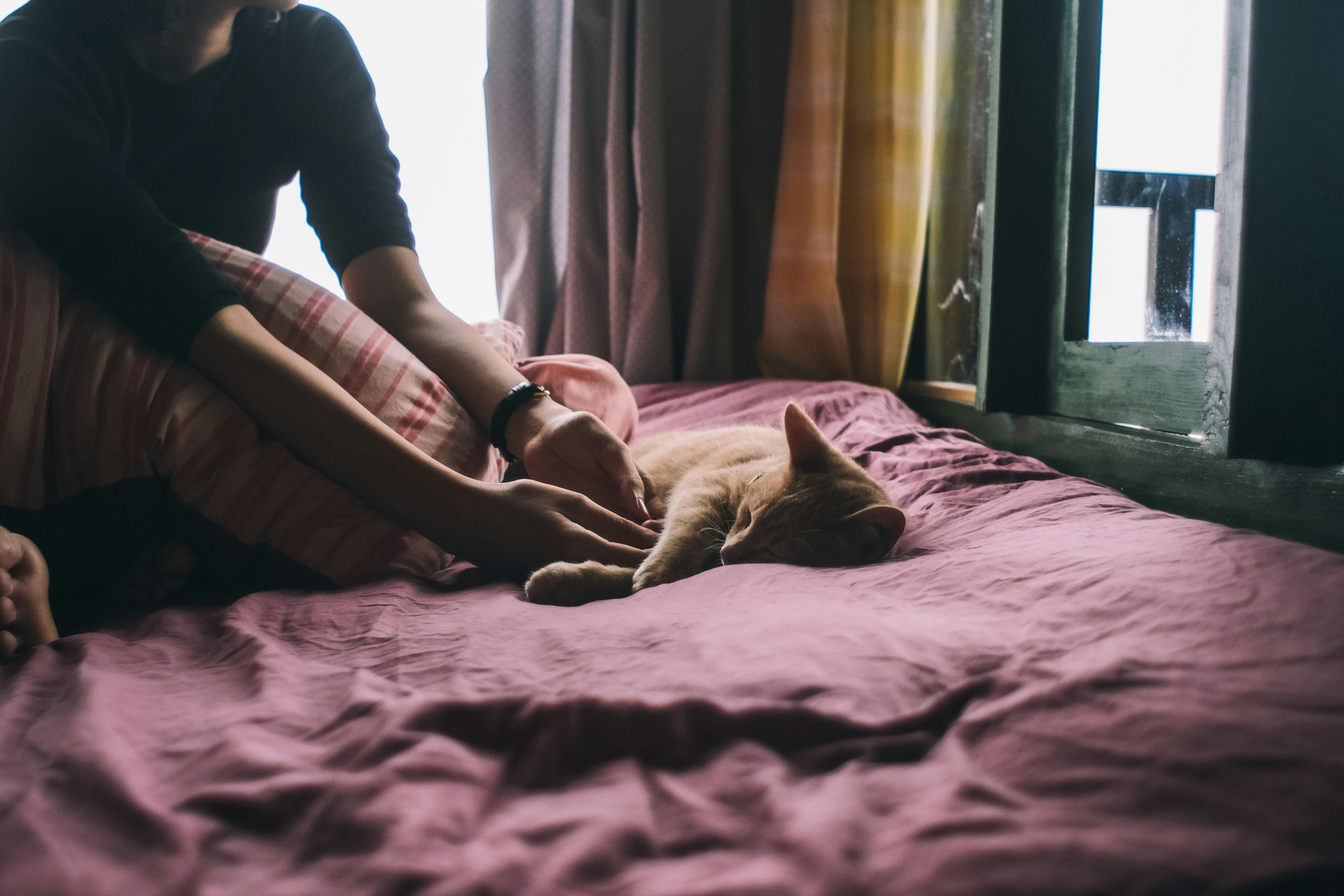 |
| Image credit: Pexels |
Cats, those enigmatic and beloved creatures, often display fascinating behaviors that leave their human companions both puzzled and amused. One such scenario is when a cat's owner falls ill. Understanding how feline friends react during these times can provide insight into their unique psyche and deepen the bond between human and pet.
Empathetic Companionship
Cats are known for their keen sense of observation and empathy towards their owners. When a human falls sick, a cat's behavior can change significantly. Many cats display heightened vigilance and may even become more affectionate than usual. They might curl up next to their sick companion, offering warmth and comfort through their presence.
Increased Attention
During times of illness, cats may exhibit increased attention towards their sick human. This could manifest as more frequent visits, gentle headbutts, or soft purring near the bedside. Some cats may even express concern by vocalizing more often or rubbing against their owner in a soothing manner.
Altered Daily Routine
A sick owner can disrupt a cat's established routine. Felines are creatures of habit and may feel unsettled when their human is unwell. As a result, they may adapt their behavior to accommodate the situation, such as altering their feeding times or spending more time indoors to provide company.
Monitoring Behavior
Cats are naturally curious creatures, and when their owner is sick, they may take on the role of caretaker. Observing their human's condition closely, cats may exhibit behaviors indicative of concern or watchfulness. This could include sitting nearby, keeping a watchful eye, or even gently nudging their owner to check on them.
Seeking Reassurance
Just as humans seek reassurance from loved ones when feeling unwell, cats may also seek comfort and reassurance from their sick owner. They may approach more frequently for pets and cuddles, seeking solace in the familiar touch of their human companion.
Stress and Anxiety
While many cats display empathy and affection towards their sick owners, others may experience stress or anxiety in response to the changed environment. Loud noises, unfamiliar scents, or disruptions to their routine can contribute to feline stress levels, leading to behaviors such as hiding, excessive grooming, or vocalization.
Providing Support
As responsible pet owners, it's essential to recognize and support our feline friends during times of illness. Providing a quiet and comfortable environment, maintaining their regular routine as much as possible, and offering reassurance through gentle interactions can help alleviate any stress or anxiety they may be experiencing.
Conclusion
In conclusion, cat behavior when their human is sick is a complex and nuanced subject. While some cats may display heightened empathy and affection towards their sick owners, others may experience stress or anxiety due to the changed circumstances. By understanding and supporting our feline friends during these times, we can strengthen the bond between human and pet and ensure the well-being of our beloved companions.
@nolacrazycatlady #catsoftiktok #cattok #canihelpyou #nolacrazycatlady #catlady ♬ original sound - BecauseCats🐈⬛️🐾









0 Comments